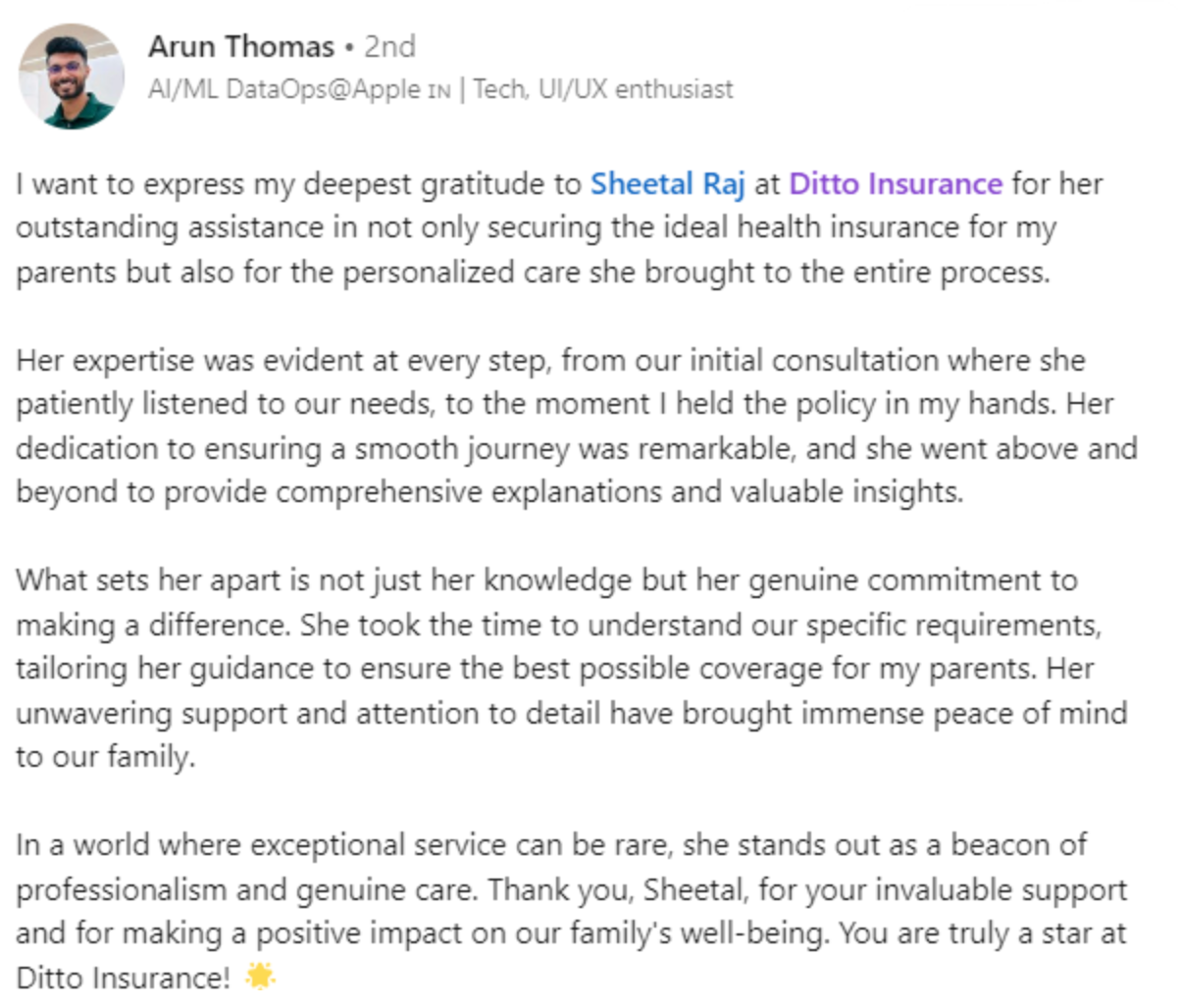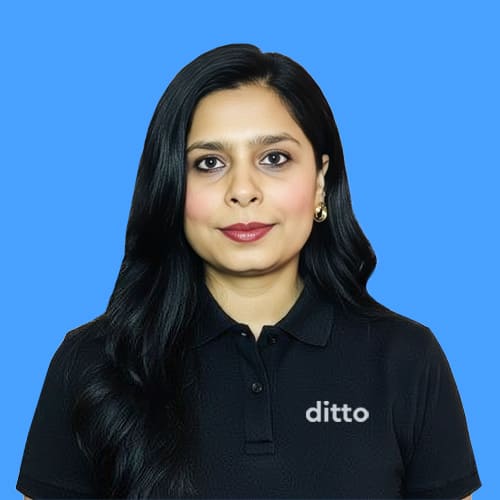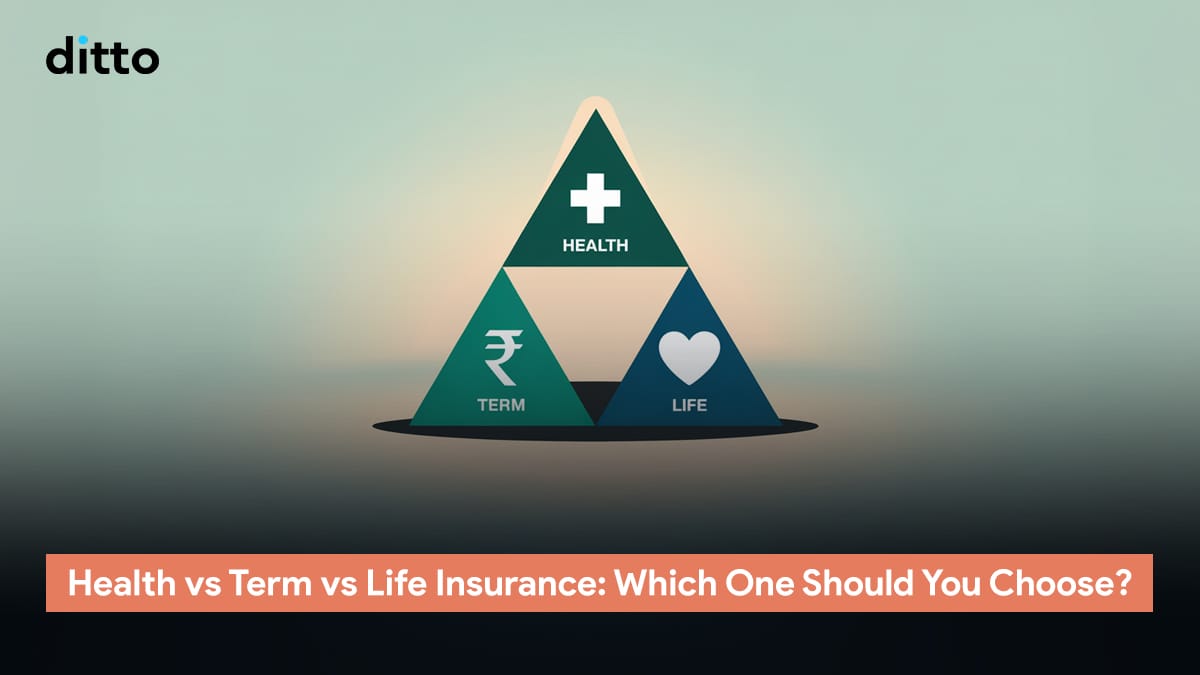Health vs Term vs Life Insurance: Which One Should You Choose?
Health, term, and life insurance serve different purposes, but together provide complete financial protection. Health insurance safeguards you from medical and hospitalization expenses, term insurance secures your family with a lump-sum payout in case of your untimely demise, and life insurance combines protection with savings, offering maturity benefits if you survive the term.
The recommended approach is to prioritize: Start with health insurance to cover medical costs, then add term insurance to protect your family financially, and consider life insurance only when you want guaranteed returns, don’t want even the slightest risk, and are okay with lower returns and high costs. This builds a comprehensive financial safety net without overspending.
Choosing the right insurance can be confusing. Health, term, and life insurance all offer financial support, but each one works differently. Health insurance helps with hospital bills, term insurance protects your family's income if something happens to you, and life insurance adds a savings element.
Note: Technically, term insurance is a subset of life insurance. However, when we refer to life insurance here, we specifically mean traditional plans such as endowment, money-back, or whole-life policies that combine coverage with a savings or investment component.
This 2025 Ditto guide explains which one to buy first and how to build strong financial coverage step by step.
Friendly reminder: It’s easy to get lost comparing policies and premiums. Instead of spending hours on it, why not get personalized insurance advice from Ditto? We offer free consultations with zero spam! Just 30 minutes to clarify all your doubts. So book a call now

Health Insurance vs Term Insurance vs Life Insurance: Overview
Health Insurance
Health insurance shields you from medical and hospitalization costs by covering expenses for treatments, surgeries, and emergencies. Popular comprehensive plans in this category include HDFC Optima Secure, Care Supreme, Aditya Birla Activ One Max, SBI Super Surplus Platinum Infinite, and Niva Bupa ReAssure 2.0 Platinum+.
Term Insurance
Term insurance protects your family’s income in case of your absence. Some of the most trusted options in this space are HDFC Life Click2Protect Supreme, ICICI Pru iProtect Smart Plus, Aditya Birla Life Smart Term Plan Plus, Bajaj Allianz Life eTouch II, and TATA AIA Sampoorna Raksha Promise.
Life Insurance
Life Insurance offers both protection and long-term savings or investment benefits. It provides maturity value if you outlive the policy term and financial security for your family in case of your death. Examples include traditional plans like LIC New Endowment Plan, HDFC Sanchay Plus, and ULIPs such as ICICI Pru Signature or Tata AIA Wealth Pro.
To learn more about how we evaluate plans and insurers at Ditto, click here.
Health vs Term vs Life Insurance: Comparison Table
Insurance can seem complicated, but a side-by-side comparison makes it easier to see what each plan does and who it benefits.
Here’s a detailed breakdown:
Why Talk to Ditto for Insurance?
At Ditto, we’ve assisted over 8,00,000 customers with choosing the right insurance policy. Why customers like Arun below love us:

✅No-Spam & No Salesmen
✅Rated 4.9/5 on Google Reviews by 15,000+ happy customers
✅Backed by Zerodha
✅Dedicated Claim Support Team
✅100% Free Consultation
You can book a FREE consultation here. Slots are running out, so make sure you book a call now.
Ditto’s Take
At Ditto, we recommend building your insurance in a simple, prioritized way:
- Start with health insurance as your top priority. It covers hospitalization, treatment costs, and medical emergencies. Everyone needs it, regardless of age, whether for themselves or their family.
- Next, get term insurance if you have dependents or expect to in the future. It offers high coverage at a low cost with locked-in premiums, ensuring your family’s financial security in case of your untimely demise.
- Once health and term insurance are in place, the true pillars of your financial protection, you can explore higher-risk investments such as NPS, equities, or crypto.
- Consider traditional life insurance only after securing your base protection, especially if you prefer low-risk, guaranteed returns or have a specific insurance goal.
At Ditto, we help you build a strong financial foundation, starting with the right health and term insurance before moving to other investment options.
Frequently Asked Questions (FAQs)
Can I buy both health and term insurance?
Absolutely. Ideally, you should have both, as each serves a different protection need.
Which one should I buy first: health, term, or life insurance?
Start with health insurance since medical costs can strike anytime. Next, get term insurance once you have dependents or loans. Consider life insurance only if you want guaranteed returns or a savings component.
Can life insurance replace term insurance?
No, term insurance offers higher coverage at an affordable cost, whereas life insurance is optional for those seeking returns.
Can I wait and buy these after a few years?
Technically, yes, but it’ll cost more later. Premiums rise as you age, and health conditions developed in the meantime might get excluded. Buying early means lower premiums and fewer restrictions.
Last updated on:










